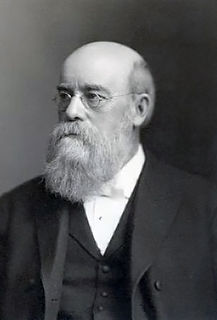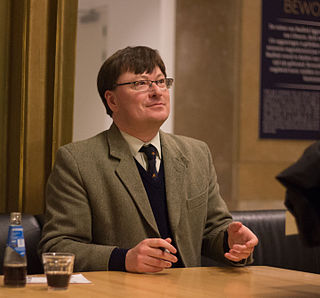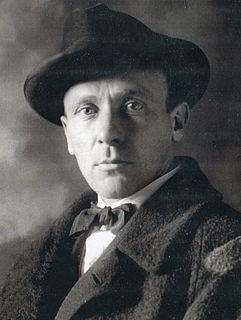A Quote by Leo Tolstoy
Ivan Ilych saw that he was dying, and he was in continual despair. In the depth of his heart he knew he was dying, but not only was he not accustomed to the thought, he simply did not and could not grasp it. The syllogism he had learnt from Kiesewetter's Logic: "Caius is a man, men are mortal, therefore Caius is mortal," had always seemed to him correct as applied to Caius, but certainly not as applied to himself. That Caius - man in the abstract - was mortal, was perfectly correct, but he was not Caius, not an abstract man, but a creature quite, quite separate from all others.
Related Quotes
Manlius ... took care in his invitations, actively sought to exclude from his circle crude and vulgar men like Caius Valerius. But they were all around; it was Manlius who lived in a dream world, and his bubble of civility was becoming smaller and smaller. Caius Valerius, powerful member of a powerful family, had never even heard of Plato. A hundred, even fifty years before, such an absurdity would have been inconceivable. Now it was surprising if such a man did know anything of philosophy, and even if it was explained, he would not wish to understand.
It must be granted that in every syllogism, considered as an argument to prove the conclusion, there is a petitio principii. When we say, All men are mortal Socrates is a man therefore Socrates is mortal; it is unanswerably urged by the adversaries of the syllogistic theory, that the proposition, Socrates is mortal.
Suppose we pick a name for him, eh?" Caius Pompeius stepped over and eyed the child. "He looks a little like my proconsul, Marcus. We could call him Marcus." Josiah Worthington said, "He looks more like my head gardener, Stebbins. Not that I'm suggesting Stebbins as a name. The man drank like a fish." "He looks like my nephew Harry," said Mother Slaughter... "He looks like nobody but himself," said Mrs.Owens, firmly. "He looks like nobody." "Then Nobody it is," said Silas. "Nobody Owens.
I finally knew... why Christ's prayer in the garden could not be granted. He had been seeded and birthed into human flesh. He was one of us. Once He had become mortal, He could not become immortal except by dying. That He prayed the prayer at all showed how human He was. That He knew it could not be granted showed his divinity; that He prayed it anyhow showed His mortality, His mortal love of life that His death made immortal.
The sun hides not the ocean, which is the dark side of this earth, and which is two thirds of this earth. So, therefore, that mortal man who hath more of joy than sorrow in him, that mortal man cannot be true-- not true, or undeveloped. With books the same. The truest of all men was the Man of Sorrows, and the truest of all books is Solomon’s, and Ecclesiastes is the fine hammered steel of woe.
When Luke had descended into the River Styx, he would've had to focus on something important that would hold him to his mortal life. Otherwise he would've dissolved. I had seen Annabeth, and I had a feeling he had too. He had pictured that scene Hestia showed me—of himself in the good old days with Thalia and Annabeth, when he promised they would be a family. Hurting Annabeth in battle had shocked him into remembering that promise. It had allowed his mortal conscience to take over again, and defeat Kronos. His weak spot—his Achilles heel—had saved us all
All things whatsoever God in his infinite wisdom has seen fit and proper to reveal to us, while we are dwelling in mortality, in regard to our mortal bodies, are revealed to us in the abstract, and independent of affinity of this mortal tabernacle, but are revealed to our spirits precisely as though we had no bodies at all.
At this gathering [Council of Niceau in 324 AD] many aspects of Christianity were debated and voted upon ? the date of Easter, the role of the bishops, the administration of sacraments, and, of course, the divinity of Jesus... until that moment in history, Jesus was viewed by His followers as a mortal prophet... a great and powerful man, but a man nonetheless. A mortal.




































